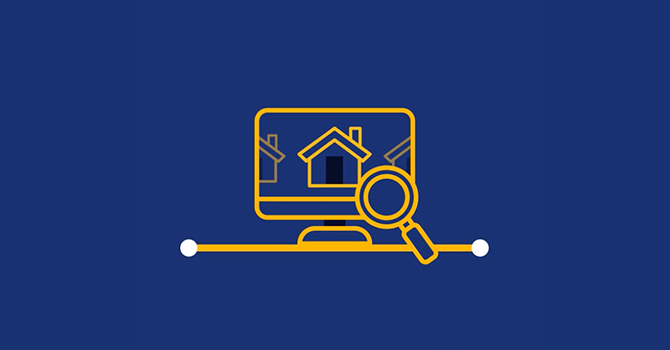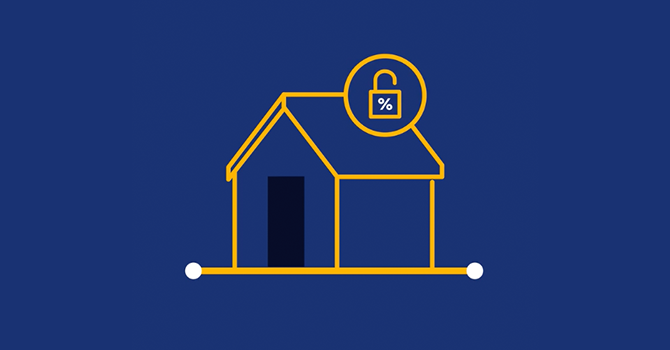Getting a Mortgage: What to Expect From Closing
Buying a home? Learn everything you need to know about a mortgage closing, including the mortgage closing process and the mortgage documents you need.


Once you’ve located the home you want to buy, successfully made it through the application process, and set a closing date, it’s time to prepare for your mortgage closing. Let’s explore how to prepare for a mortgage closing, the steps of the closing process, necessary documentation, closing costs, and how long you can expect the entire process to take.
How to prepare for a mortgage closing
At least three business days before your closing date, you are required to receive a Closing Disclosure. The Closing Disclosure will include your loan amount and interest rate, your expected monthly payments, and any fees that will be due to complete your mortgage closing. It’s very important to review the Closing Disclosure carefully so that any problems can be resolved prior to closing.
You’ll also want to set up a formal walk-through of the property with your agent one to two days before the closing. At this point, the seller should have moved out, and you’re confirming that the home is in the expected condition and any agreed-upon repairs have been made. Though a final walk through is not required by law, you’ll want to make sure everything is in working order as expected, and that nothing has gone wrong as a result of the former owner vacating the property.
Once you’ve completed the Closing Disclosure review and property walk-through, you’re ready to continue with the closing process.
What is the mortgage closing process?
After you’ve received your Closing Disclosure and completed a formal walk-through of the property, you should be prepared to take the following steps on or ahead of your closing date:
1. Set up an escrow account
You may be required to set up an escrow account. The escrow account is typically used to hold funds that the lender will use to pay costs such as property taxes and homeowner’s insurance.
2. Make payment arrangements
Most funds will be wired ahead of time, and you should check with your bank on when to initiate the wire transfer so it arrives in time. You may also need to bring a certified check or money order to the closing.
3. Provide identification documents
Make sure that you bring appropriate identification. Typically, a driver’s license or passport is required.
4. Review and sign paperwork
You’ll need to review and sign all of your closing documents, such as the Closing Disclosure, a deed of trust, a promissory note, and the deed to the property.
5. Enjoy being a homeowner!
Once you have signed all of the necessary documents and paid the required funds, you’ll receive the keys to your new home.
What are mortgage closing costs?
You might think that the purchase price of your property covers everything you have to pay, but there are additional expenses and fees that you’ll owe before your mortgage closing is complete. Closing costs can include, but are not limited to, the appraisal fee, underwriting fee, origination fee, and title search fee. These can run anywhere from 2-5% of the mortgage loan amount and are usually paid with a certified check, cashier’s check, or electronic wire transfer at the time of closing.
What mortgage documents do I need?
In addition to signing the standard closing forms such as the promissory note, the deed of trust and the closing disclosure, you’ll need to provide proof of homeowner’s insurance prior to your closing and bring a paid receipt to the closing. There may also be documents required by your state or local government.
What does a mortgage closer do?
A mortgage closer works for a bank or other mortgage lender, will review all of the submitted information, and prepare the closing documents. When the documents are ready, the mortgage closer will forward them to the appropriate parties and coordinate communication between the borrower and agent.
How long does a mortgage closing take?
According to the mortgage software processor Ellie Mae, the average mortgage closing time for buyers in 2021 is 51 days, and a few days less for refinancing.
Bottom line: mortgage steps to closing
The mortgage closing process can seem daunting, but if you’re prepared and understand how mortgage closings work, you’ll help ensure a smooth homebuying process. With Laurel Road, you’ll experience a simplified online process that will help you close fast and you’ll have support from dedicated mortgage specialists throughout the entire process.
To learn more about Laurel Road Mortgages, visit laurelroad.com/mortgage
In providing this information, neither Laurel Road nor KeyBank nor its affiliates are acting as your agent or is offering any tax, financial, accounting, or legal advice.
Any third-party linked content is provided for informational purposes and should not be viewed as an endorsement by Laurel Road or KeyBank of any third-party product or service mentioned. Laurel Road’s Online Privacy Statement does not apply to third-party linked websites and you should consult the privacy disclosures of each site you visit for further information.
Don’t miss the latest financial resources.
This site is protected by reCAPTCHA and the Google Privacy Policy and Terms of Service apply.
Get tailored Laurel Road resources delivered to your inbox.
Search Results


